Pond languages
Once upon a pond in New Zealand, there was a tiny orchestra.
Pond languages comes with a soundtrack. It is a field recording of aquatic insects mingled with hushed human voices in the background. I used a hydrophone to listen to them, and minimally edited/composed the sounds recorded. Try listening to it before, during, or after reading the story.
The language of the world is full of (un)intentional meanings and music. Insects possess intelligence and speak in ways that are forever mysterious to humans. Yet we can get a glimpse. Here are some keys, join the rhythms.
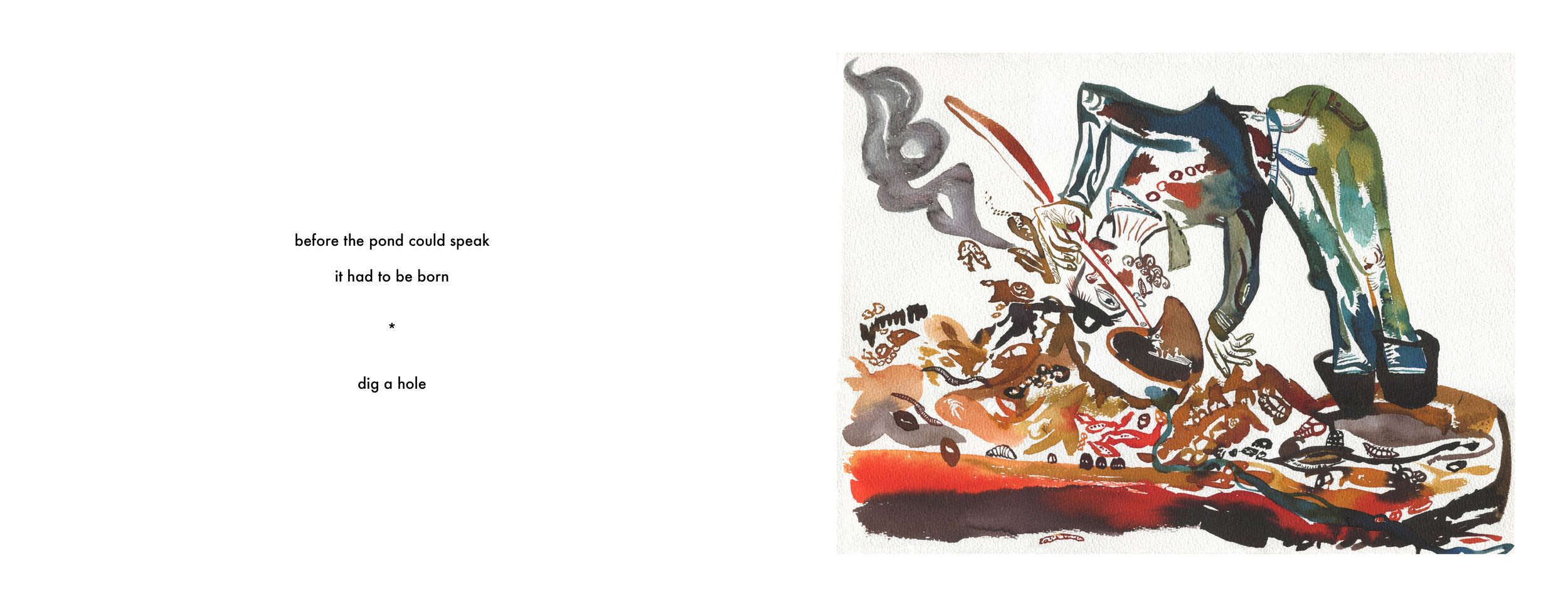
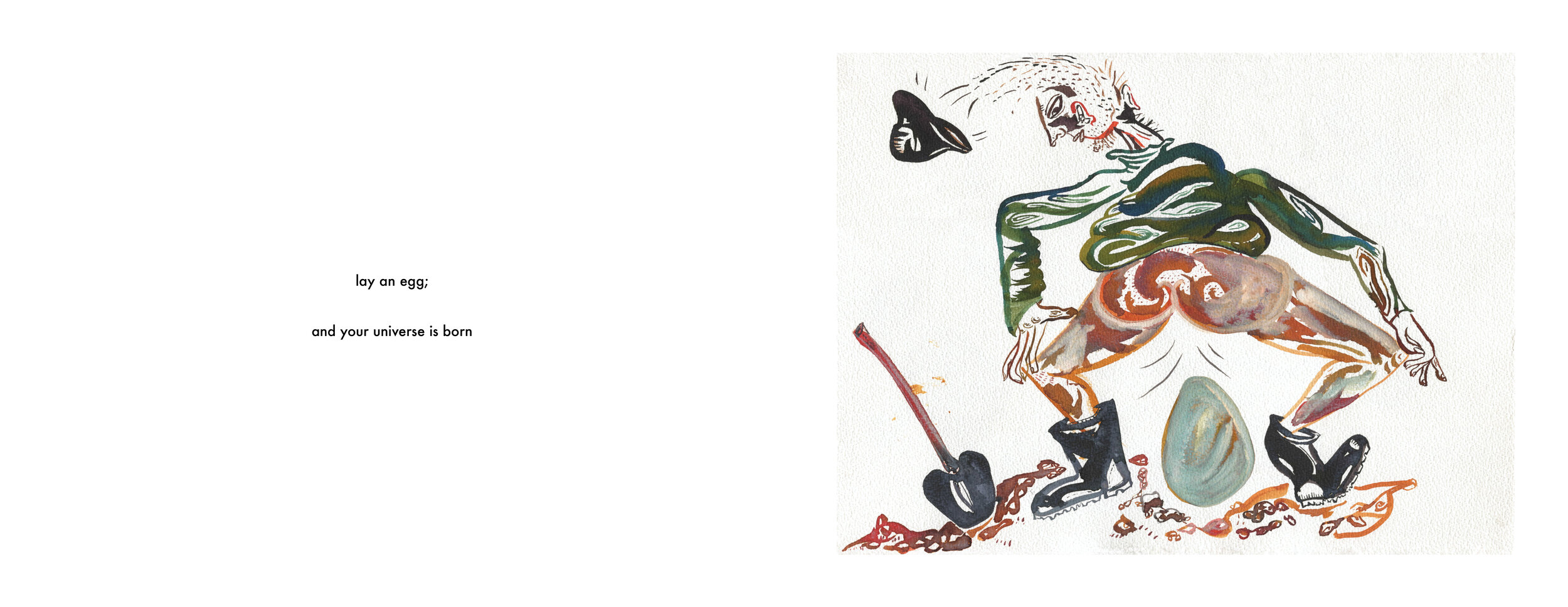
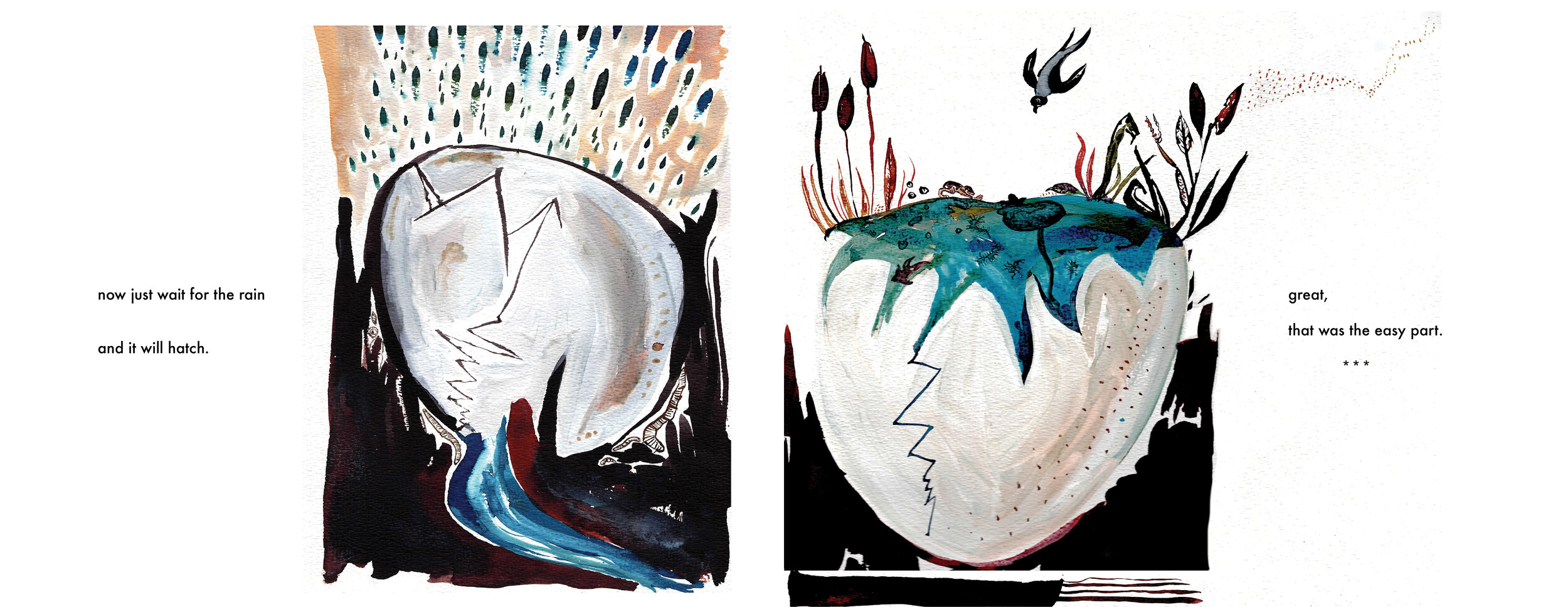
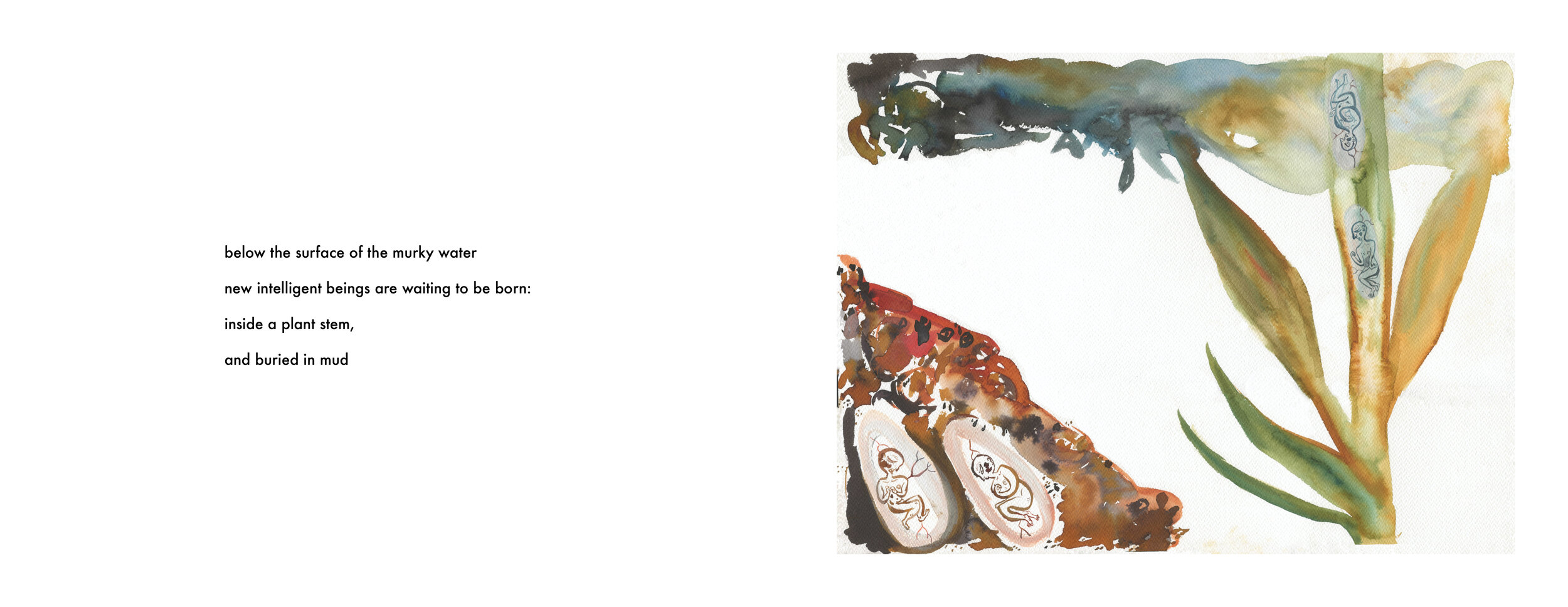
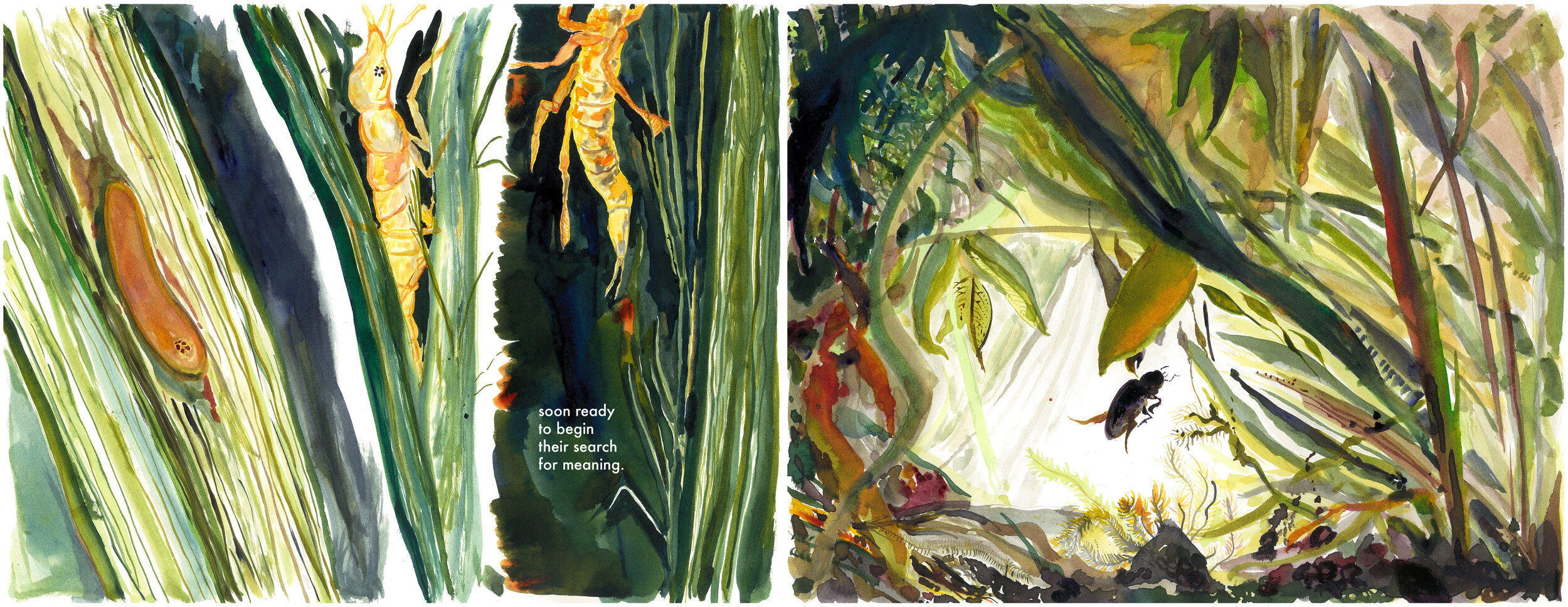
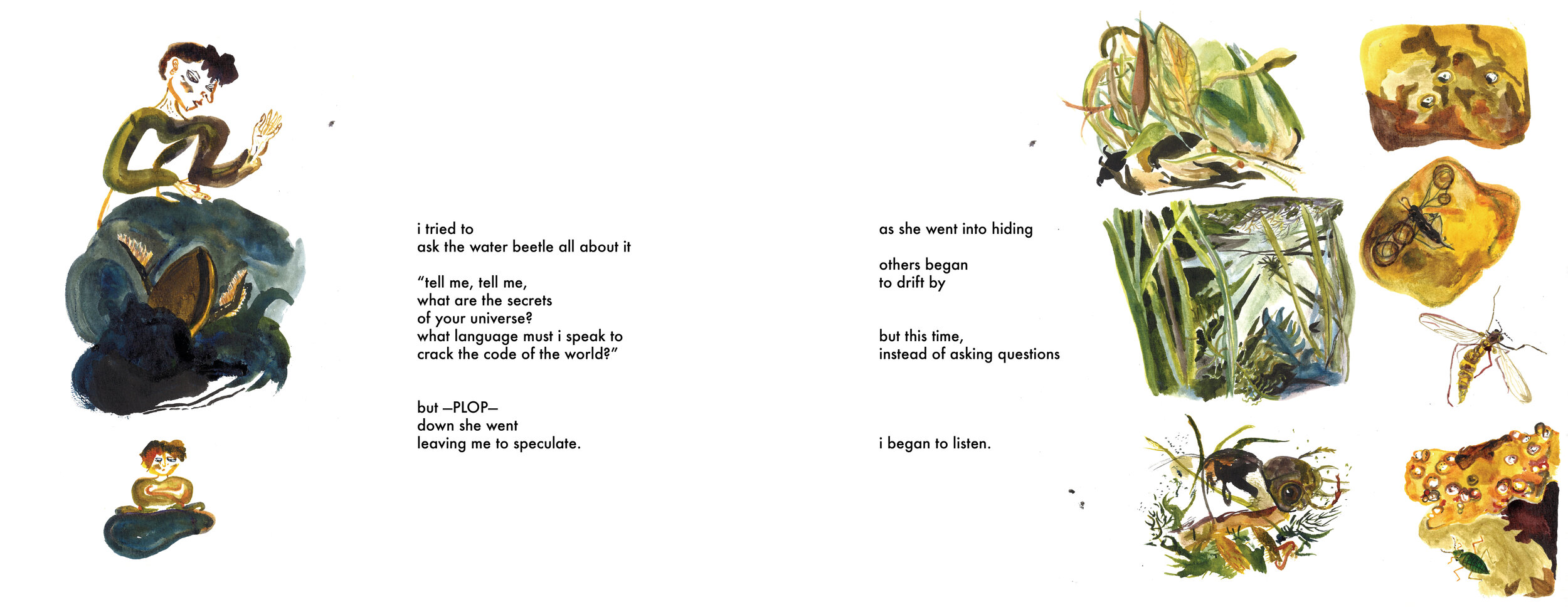
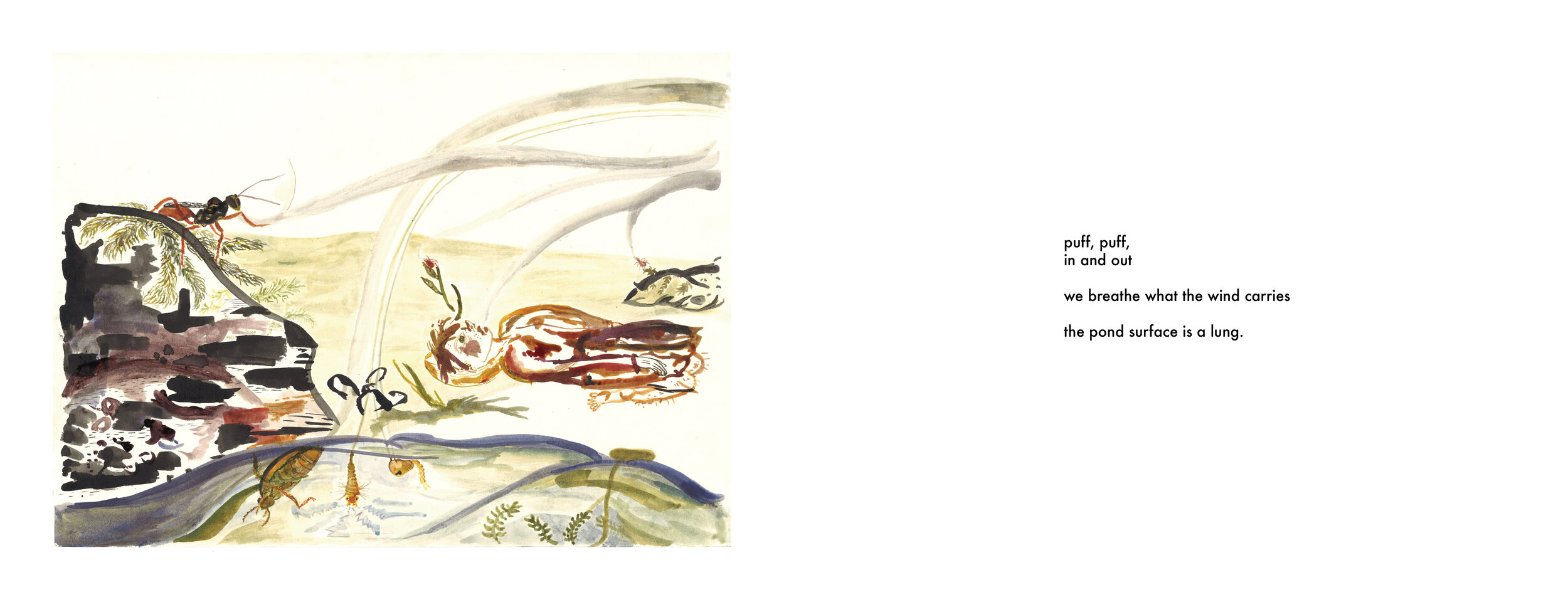
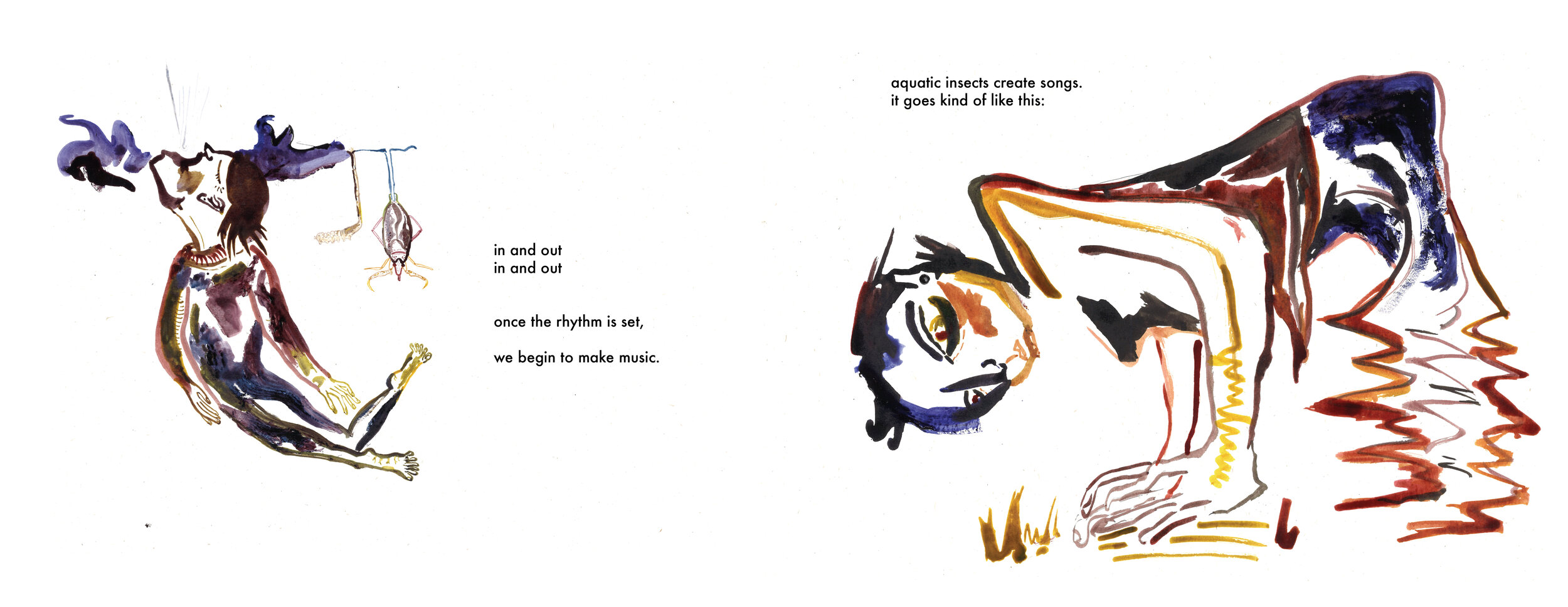
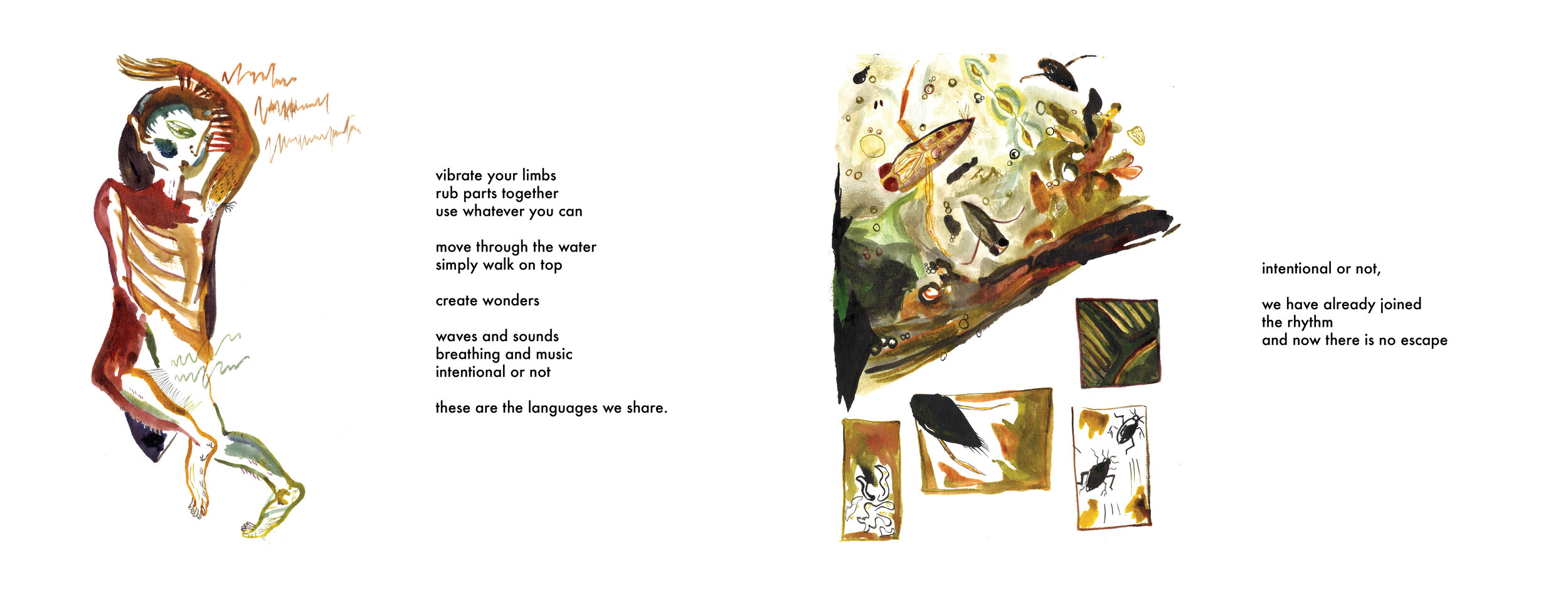
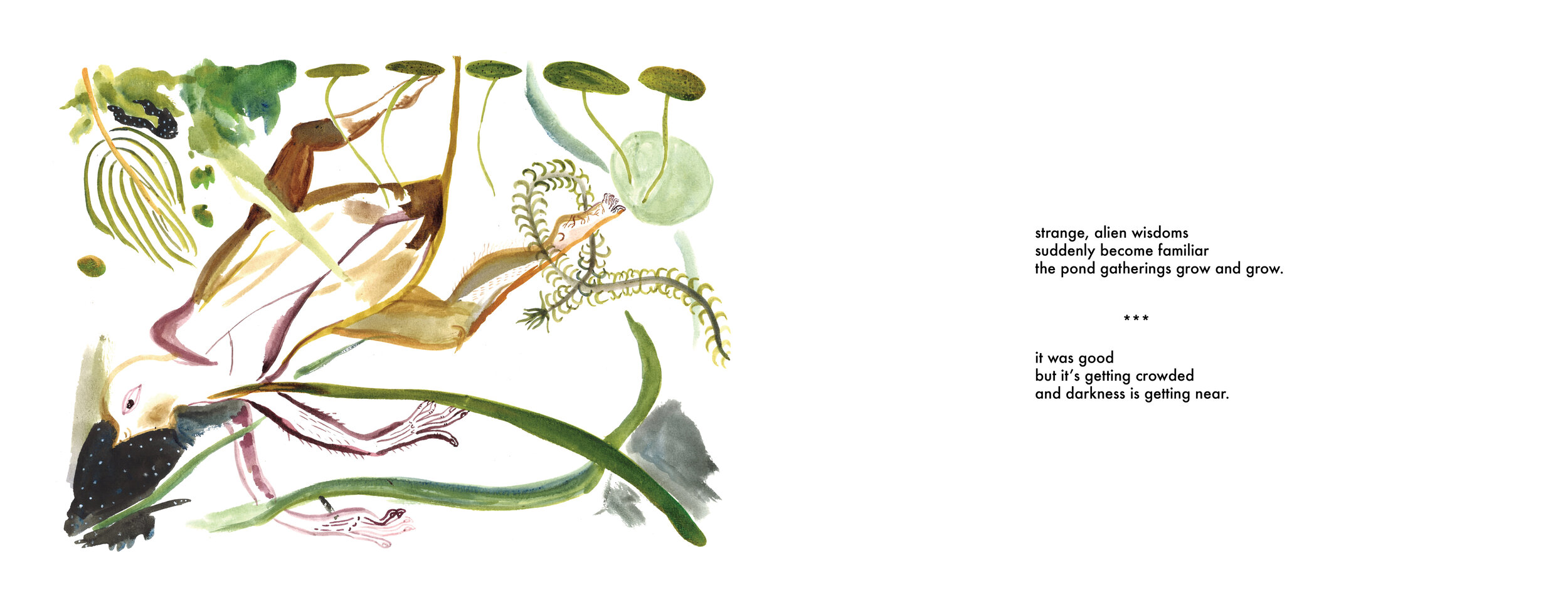
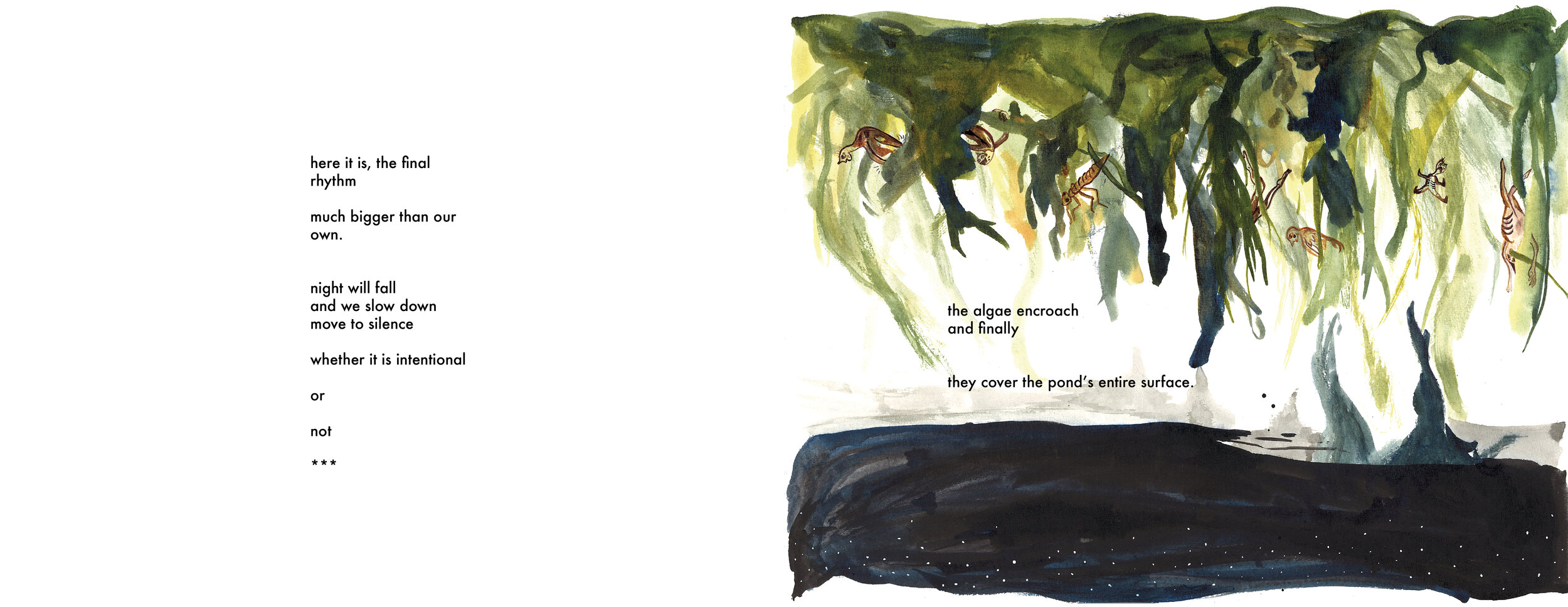
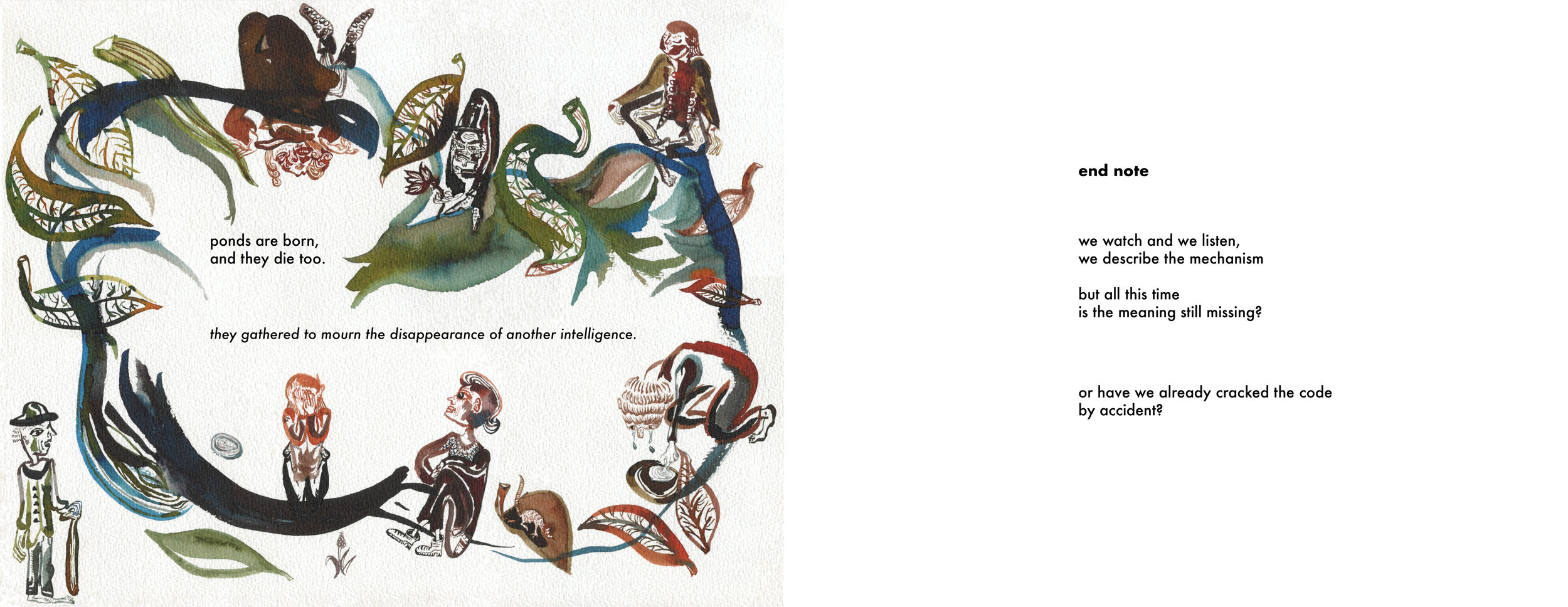
***
Essay on why we need to dig more ponds
What do you think about when you think of the sounds of water?
For a long time, water sounded like movement to me: splash, drip drip, gush, whirl. Ancient and timeless sounds. It never really occurred to me that water is filled with living sounds, secretive soundscapes very close to home. Any healthy freshwater body —even the smallest pond or stream— has the potential to host an orchestra where insects and other invertebrates are the players.
Inspired by the works of philosoper David Rothenberg and acoustic ecologists David Dunn and Tom Lawrence, I started listening to ponds with a special microphone called a hydrophone. The sound world of insects lies on a continuum of vibrations and sound, and is one of the most mysterious and lesser understood aspects of their lives. Water striders vibrate their legs on the surface to make ripples of varying frequencies and durations. They are sensitive to vibrations all around — when you yell out, they may vibrate in response. Water beetles, backswimmers, water boatman, and other aquatic bugs create clicks, rasps, buzzes, and chirps underwater. This happens by rubbing body parts together in sophisticated ways, creating rhythms and intensities. No-one really knows what exactly they communicate, but it happens all the time, like during mating, swimming, cleaning, feeding, conflicts, and even for sending sympathetic vibrations to other insects. Like Dunn, I came to see ponds as a kind of intelligence of their own, that comes into being through these tiny yet complex communities.
Listening to ponds is humbling and inspires contemplation of what lies beyond our reach and control. Invertebrates play fundamental roles in freshwater systems, for example by filtering and breaking down nutrients, and as food for larger animals. Many of these inhabitants are sensitive to pollution, so it is possible to measure the health of freshwater ecosystems through sound.
But apart from function, their sound has a mysterious beauty. What exactly are they saying or playing? The line between language and music is blurred. How are we to judge it? A world without healthy freshwater is not just deprived of resources and ecosystem functioning — it is a world deprived of music.
Freshwater resources are increasingly under threat. Fortunately we can help out. Dig a pond, and the creatures will find it. Ponds are wildlife magnets. So, before the tiny people disappear, let’s start digging.
*